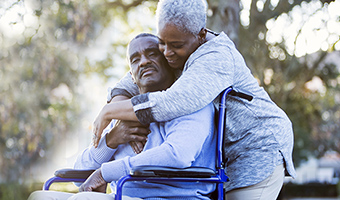Does Your Mom Need Companion Care?
Have you recently noticed your aging mother struggling to perform everyday tasks around the house, appearing worn down, or not socializing with friends and neighbors? While it can be difficult to accept that your mother is getting older and may require additional assistance, you have options. You may need elderly companion care to support your mom, especially if she lives alone and doesn’t have anyone to visit her on a consistent basis.
Fortunately, Visiting Angels offers dedicated and compassionate companion care that can assist your mom with basic household tasks to help her live safely and comfortably at home.
How Does Companion Care Help?
Companion care is a non-medical service for older adults who need companionship and support around the house, but don’t require hands-on assistance with personal care tasks, such as bathing, toileting, and grooming. Companion care tasks include:
- Laundry
- Light housekeeping
- Meal preparation
- Shopping and errands
- Transportation to appointments
- Medication reminders
In addition, professional caregivers provide social engagement for older adults to prevent isolation — even if it means simply sharing a cup of coffee, taking a walk, playing a board game, or accompanying them to a social activity outside the home.
What Are Signs Your Mom Might Need Companion Care?
As your elderly parent ages, she may become forgetful, slower, or afraid to engage in certain activities that involve prolonged standing, climbing stairs, and other actions. She might forget how to effectively perform certain daily tasks, such as cooking or grocery shopping.
Watch for the following signs to determine whether you should seek and hire a professional caregiver for your mom or another loved one:
- Changes in routine or habits
If your mom stays in her bed until the late afternoon, a companion caregiver can provide motivation to help resume her typical morning routine. Or, if she is skipping meals in favor of snacking, a companion caregiver can restore her joy in cooking and sit down for a shared meal. - No longer driving
If your mom is no longer able to drive, a companion caregiver can provide transportation she needs to keep up with errands, appointments, and activities. - Missing medication doses
Missing medication doses or forgetting prescriptions could signal your mom could use a companion to assist with medication reminders. - Messy house
If laundry, dishes, and clutter are piling up around the house, a companion caregiver can assist with light housekeeping. - No longer taking an interest in personal appearance
Seniors who lose interest in caring for their appearance may be experiencing loneliness or social isolation. If your mom stops combing her hair, getting dressed for the day, or wearing makeup, she may need senior care assistance. - Changes in weight
Preparing meals can become challenging for seniors, especially after losing a spouse. As a result, they may avoid normal eating or resort to unhealthy snacking, which could lead to changes in weight. If this sounds like your parent, a caregiver can help restore healthy eating habits by providing a familiar face to assist with meal preparation.
How to Start Companion Care for Your Mom?
If you think your mom might benefit from companion care, contact your local Visiting Angels home care office to schedule a no-cost, no-obligation, in-home consultation. A care coordinator will meet with you and your mother to discuss goals and answer questions.
If you decide to begin home care services, your care coordinator will perform an in-home care assessment and develop a personalized care plan outlining the specific services your caregiver will provide.
At Visiting Angels, our goal is to provide seniors with the companionship, socialization, and assistance they deserve — while providing their loved ones with the peace of mind they need.













